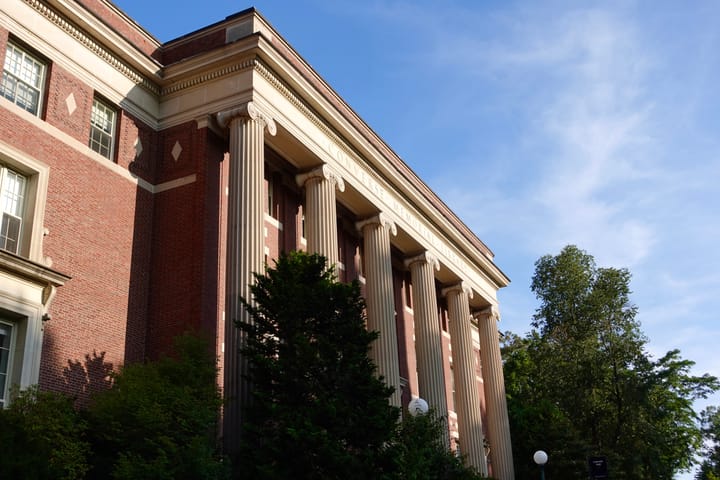A Letter to the Student Body from College Council
Dean of Students Angie Tissi-Gassoway and Department Chair of Asian Languages and Civilizations Timothy J. Van Compernolle clarify some concerns regarding the new Honor Code.
We write to share with the campus community that we will postpone further discussion of the proposal for a new Honor Code until the Fall ’25 semester. The strongly expressed desire to have more time to deliberate on the merits of the proposal are compelling.
We wanted to take the opportunity to correct one misunderstanding. The proposal does not come from the administration. Instead, it comes from the only group on campus with the delegated authority to propose changes to the Honor Code, namely the College Council. This faculty-led standing committee consists of four students, one staff member, three faculty members, and two non-voting (ex-officio) members, one the President of the Association of Amherst Students, the other the Dean of Students. That makes 10 members in total, eight of them with votes. In the many years the College Council has been rethinking the Honor Code, students have been and are central to the deliberations.
Any proposal for change is designed to address a perceived problem, and we wanted to give you a sense of what the College Council believes that is. Despite its title, there is a growing feeling among students and faculty that the Honor Code has become marginal and, at times, irrelevant to academic and student life, all while official college policies like freedom of expression and dissent, among others, have grown more robust. Students acknowledge the Honor Code during matriculation and Orientation, but the sentiment expressed is that it recedes in importance for students. Over the years, it has become aspirational — a statement of ideals. For our group, there is one significant shortcoming that prevents it from being the centerpiece of a student’s time at Amherst: brevity. If it is to be aspirational yet still important for students, it needs to be short. The many students who have served on the College Council over the years have repeatedly stressed their belief in the importance of an Honor Code that has more visibility, for example, by being pledged by all new students during Orientation or at Convocation, accessible in the classroom, and reinforced in other ceremonial occasions.
The College Council also wants to share some of the information we gathered by talking with peer institutions, diving through the archives, and debating the merits. Through these conversations, we learned that while there is no universally agreed-upon structure for honor codes, successful models prioritize clarity, cultural relevance, and ongoing dialogue. We heard from institutions that regularly revise their codes in response to social and technological shifts and others that embed their codes deeply into the curriculum and campus rituals. We also uncovered aspects of Amherst’s history — such as the gentleman’s code from the 1940s through 1970s — that underscore the evolving nature of integrity and community expectations. These findings reminded us that the most effective honor codes are not static policy documents but living aspirations, shaped continually by the people they serve.
Any proposal for change has merits and demerits, and we look forward to a robust dialogue in the fall. Each student is then free to cast their vote based on their assessment of the proposal.
On behalf of the College Council,
Professor Tim Van Compernolle
Dean Angie Tissi-Gassoway



Comments ()